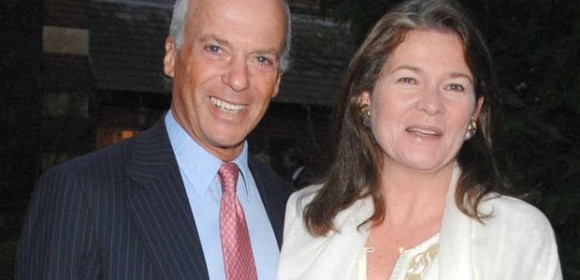Heineken’s family values silences brewing talk of industry takeover
When her father died 12 years ago, Charlene de Carvalho-Heineken was catapulted above Queen Beatrix as the richest woman in the Netherlands. Yet the billionaire who holds the key to future of the global brewing industry insists that she has “always been quite happy to be anonymous”.
The mother of five, who is based in London with her banker husband Michel de Carvalho, was thrust into the limelight last week when it emerged that she had used her controlling stake in Heineken to rebuff a bid approach from SABMiller.
In a terse statement, the Dutch brewer said that it had “consulted with its majority shareholder and concluded that SABMiller’s proposal is non-actionable”.
Just in case SABMiller was thinking about returning with a sweetened offer, the statement added: “The Heine-ken family has informed SABMiller, Heineken and Heineken Holding of its intention to preserve the heritage and identity of Heineken as an independent company.”
By rejecting its rival’s overtures, Mrs de Carvalho-Heineken appears to have condemned the world’s second biggest brewer to face its own takeover battle with the No 1, Anheuser-Busch InBev. By bidding for Heineken, SABMiller had hoped to make itself too big for the maker of Budweiser and Beck’s to swallow. Instead, most analysts now regard the FTSE 100 brewer to be “in play”.
The law graduate, who later worked in the field of architecture in France, may be one of Europe’s wealthiest individuals, with an estimated fortune of more than $10 billion, but she is also one of the most grounded. One former associate said: “She is often described as reclusive, but the simple truth is that she is normal. She may not like publicity, but she attends most big Heineken events, like the James Bond premiers and Heineken Cup finals.”
By contrast, her Anglo-Brazilian husband, who she met while skiing in St Moritz, is an outgoing individual. As a boy, he took up acting and won a role in Lawrence of Arabia, playing alongside Peter O’Toole and Omar Sharif. He quit acting to attend Harvard, though still found time to represent Britain at skiing and in the luge at three successive winter Olympic Games. In one interview, Mr de Carvalho said: “I always drank Heineken, but the problem was Heineken was the most expensive beer. So when I met my wife I thought: ‘This is fantastic, I’ll have free beer.’ I didn’t realise then that marriage is not just about free beer.”
Freddy Heineken, his wife’s late father, cut a similarly flamboyant figure as he rubbed shoulders with royalty, actors and top sportsmen, although his biggest passion was the family brewing business. It was Freddy who had gambled everything on regaining majority control of the company founded in 1867 in Amsterdam by his grandfather, Gerard Adriaan Heineken.
Under Freddy, the company expanded worldwide, although he ensured that control remained firmly in the hands of his family via a complex share structure that survives to this day. The family speak for 51.7 per cent of Heineken Holding, which in turn owns 50.005 per cent of the separately listed Heineken brewing group.
One episode that is said to have affected his daughter very deeply was the kidnapping of Freddy and his driver, Ab Doderer, in 1983 by four masked men in front of the group’s headquarters. A large ransom was paid and the two men were freed by police three weeks later — an ordeal that inspired a 2011 film starring Rutger Hauer called The Heineken Kidnapping.
Freddy Heineken limited his public appearances after the episode and the experience is said to be one of the reasons that his daughter lives most of the year in Knightsbridge, away from the glare of publicity that goes with being the heir to the Netherlands’ most famous brewing dynasty.
Mrs Carvalho’s determination to keep Heineken under the family’s control is said to be driven by a respect for her father’s legacy. In a recent interview with Fortune magazine, her husband, who is vice-chairman of Citigroup and is on the Heineken supervisory board, said that she would continue to say “no” to bid approaches and intended to pass the controlling stake to their five children.
Their eldest son Alexander, 30, who works in private equity with Lion Capital, joined his mother, 60, on the board of Heineken Holding last year and looks destined to be the figurehead for the fifth generation of the family whose lager “refreshes the parts other beers cannot reach”.





Discussion
There are no comments on this entry.